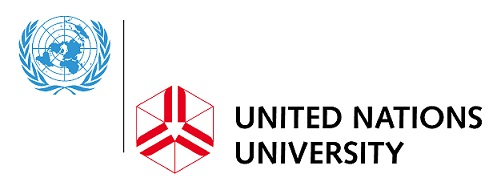 Formalising interactions between non-state stakeholders and public agencies for collaborative governance could help in addressing some of the challenging issues in Africa’s extractive industries, says United Nations University- Institute for Natural Resources in Africa (UNU-INRA)
Formalising interactions between non-state stakeholders and public agencies for collaborative governance could help in addressing some of the challenging issues in Africa’s extractive industries, says United Nations University- Institute for Natural Resources in Africa (UNU-INRA)
According to a book released by the UNU-INRA, this could play an instrumental role in enhancing the operations and the management of extractive resources for Africa’s development.
The book, entitled Collaborative Governance in Extractive Industries in Africa, urges leaders in Africa’s extractive industries to institutionalise a governance system that is transparent, inclusive and accountable in order to improve transparency, equity and efficiency in the management of revenue.
Collaborative governance, the book indicates, will also promote a common understanding of the environmental and socio-economic challenges associated with the extractive industries.
The book called for the empowerment of community stakeholders by the state, private or international agencies, who are acting as sponsors or leaders of collaborative governance processes.
This involves improving the knowledge, skills and capacity of stakeholders to engage in formal, non-violent dispute resolution and decision-making processes.
It expressed the essence of training of community members especially on issues such as resettlement of displaced communities, mechanisms for payment of compensations, and on the management of environmental impacts of extractive operations that could help improve knowledge and understanding of decision making in the industry.
In his foreword to the book, the Rector of the United Nations University, Dr. David M. Malone, asked African countries to institutionalise and strengthen their governance system in the extractive industries for development.
He states: I am confident that collaborative governance of extractive industries in Africa will contribute to the efforts to use revenues from extractive resources for inclusive growth.
The book discusses the challenges in the distribution and the management of mineral and petroleum resources and suggests many other ways of addressing them for sustainable development in Africa.
It draws lessons from other countries to help improve the management of the rich resources in Africa.
Among the recommendations are the developments of guidelines by government agencies for the use of royalties that go to traditional authorities, the strengthening of relevant state institutions, the need for the establishment of a think- tank that is devoted to the extractive industries as well as the development of efficient control mechanisms, to mitigate the resource curse on the continent.
Dr. Elias T. Ayuk, Director of UNU-INRA, said the body is committed to facilitate research on natural resource management in Africa to inform policies.
Our mandate as an institution is to support the generation of evidence-based knowledge in natural resource management in Africa to inform the formulation and the implementation of strategic governance frameworks; and this book provides key recommendations that could help in resolving conflicts between stakeholders in the extractive industries, Dr. Ayuk indicated.
As one of the research institutions of the United Nations University, UNU-INRAs domain is natural resource management, with a strategic programme area on governing and managing the extractive industries in Africa.
GNA























